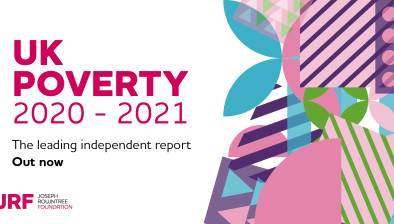JRF study analyses impact of austerity on poorest communities
 Poorer Scots report feeling more confused and less secure following rapid cuts to their incomes, according to a study for the Joseph Rowntree Foundation by researchers at Glasgow Caledonian University (GCU).It finds signs of close knit communities lending support to some members but an overall picture of heightened risk and instability.
Poorer Scots report feeling more confused and less secure following rapid cuts to their incomes, according to a study for the Joseph Rowntree Foundation by researchers at Glasgow Caledonian University (GCU).It finds signs of close knit communities lending support to some members but an overall picture of heightened risk and instability.The report, Redistribution of social and societal risk: the impact on individuals, their networks and communities in Scotland, specifically examines the impact of welfare reform and local government cuts on older people, lone-parents and people experiencing in-work poverty within Craigneuk, North Lanarkshire.
It is the latest of several JRF funded research projects tracing the impact of austerity policies on people and places in poverty. Related reports includeThe impact of welfare reform on social landlords and tenants (November 2014) and The cost of the cuts: their impact on local government and poorer communities (which is due to be published on the 11th of March 2015).
Drawing on in depth interviews, the report’s authors argue that recent and rapid welfare changes represent an unprecedented transfer of risk from the state to individuals. They warn that cuts to discretionary services will ultimately lead to higher costs if the cuts exacerbate social inequality and increase negative outcomes for individuals.
Key findings include:
Ilona Haslewood, policy and research manager for JRF, added: “This study offers valuable insight into the lived reality of austerity as experienced by vulnerable groups. It also highlights how changes to welfare and cuts to public services combine with wider factors to place individuals and communities at heightened risk, risk which they are only partially able to absorb.”







